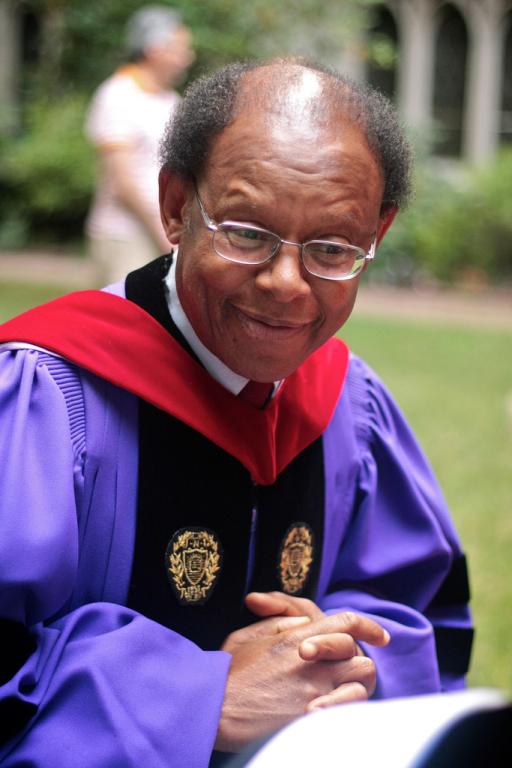I offer a brief reflection today and one that is perhaps more theological than my other pieces.
To add to the cascade of sources and writings decrying white Christian nationalism, Russell Moore, now the editor in chief of Christianity Today, penned a piece for CT and his newsletter titled, Christian Nationalism Cannot Save the World. Obviously the title is correct. Yet within the article, one finds the tendencies of white evangelicalism run rampant. These tendencies are exemplified in clauses that come near the conclusion of the piece, where Moore states emphatically:
“Christian nationalism is a liberation theology for white people. And that’s not the gospel of Jesus Christ.”
As someone tutored in white evangelicalism for much of my life, I know exactly what is going on in this particular framing. I was conditioned to see James Cone and Gustavo Gutierrez, the fathers of Black and Latin American liberation theology respectively, as heretics and peddlers of an alternate gospel. Never mind the insights of mujerista or womanist theology…each of these frameworks committed evangelical mortal sins. They exalted experience over the Scriptures. They exalted the physical over the spiritual. They argued for unorthodox understandings of the atonement. In other words, they “were not the Gospel of Jesus Christ.”
That conditioning was profoundly unfortunate, but most damningly, it was ethically constricting. To see this, one must understand what the phrase, “Christian nationalism is a liberation theology for white people” means in the context of Moore’s talk. First, Moore is saying that it is a Christian heresy. Second, he is saying that Christian nationalism is “political” in a way that the Gospel of Jesus Christ is not. Third, he is saying that liberation theology is not for white people. Contrary to each of these points, I maintain that liberation theology is political in precisely the way that the Gospel of Christ is and that as such, Black and Latin American liberation theologies are actually liberation theology for white people too. The good news of Christ’s solidarity with the oppressed is good news for all…except the oppressor.
To the first point, the sympathetic reader who reads Moore’s phrase is given the resources to dismiss Christian nationalism not in and of itself but through its association with an apparently known entity, liberation theology. In another pairing, Moore also pairs Christian nationalism with the other political boogeyman, the social gospel. For Moore, these are the right and left wings of the same heretical plane. In each case, the problem is that the Gospel is watered down and repurposed for political liberation, which is, we are told, not the purpose of the Gospel. Said even more strongly, the assumption is that if one thinks that the Gospel is about political liberation, one denies how Moore describes the gospel: as “a means to no other end than union with the crucified and resurrected Christ who transcends, and stands in judgment over, every group, identity, nationality, and culture.”
This then informs the second claim being made here: that liberation theology, the social gospel, and Christian nationalism are all political in ways that the Gospel of Jesus Christ is not, which is a particularly anemic way to understand politics. The declaration that “Jesus Christ is Lord”, which the Apostle narrates as necessary for salvation in Romans 10:9, is a profoundly political act. It is a declaration of allegiance. It is an affirmation that Jesus is Lord, not a particular nation, not Mammon, and certainly not a particular cultural expression. But it is also an affirmation that if Jesus is in fact Lord, then His priorities ought to be the priorities of His people and the Scriptures as a whole narrate those priorities clearly. As Gutierrez said clearly, “the entire Bible, beginning with the story of Cain and Abel, mirrors God’s predilection for the weak and abused of human history. This preference brings out the gratuitous or unmerited character of God’s love.” Moore and liberation theologians both give a normative account of Christian political life. The difference is that liberation theologians often fold it into a more holistic view of salvation, one that encompasses the personal, the communal and the cosmic.
Finally and perhaps offensively, there is the overall false equivalency of the claim that Christian nationalism is “liberation theology for white people”, an absurdity that Moore surely understands: it assumes that white people are oppressed, particularly because of their whiteness, Americanness, and “Christianity”. Cone teaches us much because the Black experience in this country has largely been one of facing terroristic violence and political and economic oppression. Gutierrez, Jon Sobrino, Oscar Romero and others teach us much because of and through their embeddedness with the poor and exploited of Latin America. In white Christian nationalists, we hear nothing but the whining of those who interpret the loss of cultural and political hegemony as persecution. There is no equivalence here. Nothing in the Scriptures suggests the Lord’s sympathy with the greedy and the prideful. Much, however, aligns the Lord with the poor.
Moore is of course correct in the conclusion of his piece. Christian nationalism cannot save the world. Christian nationalism cannot save you. But an evangelicalism beholden to a fear of liberation theology cannot save you either. Only a Gospel by which you understand that Christ saves you, redeems a people for Himself, and redeems the world order can actually save you. And that is an incredibly political Gospel that aligns itself with the poor, oppressed, and marginalized of the world. That’s a liberation theology for white people. That’s a liberation theology for all people.

















